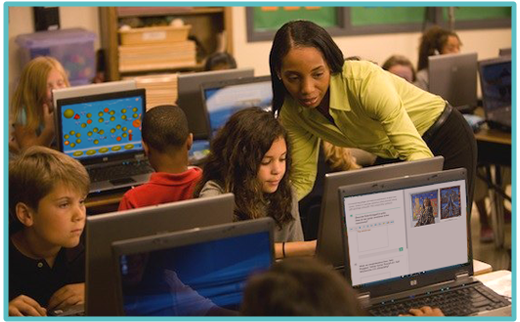The digital teaching platform is a new educational series of products structured to operate in a teacher-led classroom.
It offers a new tech-centric approach to the learning process and classroom planning.
The platform is intended to function as the instructional environment in today’s technology-intensive classrooms. It offers a full digital curriculum, and supports the teacher with tools for curriculum planning, classroom management, and student assessment.
Digital Teaching Platforms
Time To Know, Inc. is the first company to develop and implement a digital teaching platform in schools in Israel and the United States. Founded in 2004 by Shmuel Meitar, Time To Know’s vision is to “lead the knowledge revolution in the classroom, empowering teachers and enabling student success”.
According to J. Schenker from Informilo, Time To Know uses a “Web-based infrastructure software, which serves as a digital teaching platform. The software functions as an operating system for teaching, learning and assessment in the classroom. Its uniqueness is that it is based on core curriculum subjects such as math, language arts (reading, writing and comprehension) as well as English as a second or foreign language. And it supports a lot of real-time functions, allowing teachers to get immediate feedback on which students in the classroom get it and which don’t.”
Offered currently to elementary school students, the Time To Know digital teaching platform brings standards-based instruction in mathematics and reading/language arts to aid students learn important content and prepare for high stakes tests. Built upon social constructivist principles, the interactive curriculum also offers open-ended explorations and collaboration tools to deepen student understanding, increase motivation, and strengthen problem-solving skills. For teachers, Time To Know provides time-saving tools to streamline classroom management, create a smooth flow between group and individual instruction, and deliver differentiated learning activities to every learner.
New York City’s School of One middle school mathematics program utilizes its own digital teaching platform to develop personalized learning plans for students, to monitor the students’ progress, and adjust the plans accordingly.
Pedagogical Theory
The Time To Know curriculum is based on social constructivist theory. Curriculum built on social constructivist principles must create conceptual understandings together with fluency and problem-solving skills in a manner that makes these attributes mutually supportive.
In the constructivist approach, instruction is a process that supports knowledge construction instead of communicating that knowledge. The teacher serves as a guide, rather than as the expert who transfers knowledge to students. Learning activities are authentic and leverage the learners’ puzzlement and curiosity that emerges when their faulty or incomplete knowledge fails to predict what they observe. Teachers motivate students to reflect on these experiences, to seek alternative viewpoints, and to test a variety of ideas. Student motivation to attain these goals is determined by factors such as challenge, curiosity, choice, fantasy, and social recognition.
The National Research Council lists the vital goals of learning in a constructivist approach:
- Building a deep foundation of factual knowledge and procedural skills;
- Developing conceptual frameworks;
- Organizing domain knowledge as experts do;
- Improving the thinking processes.
Student motivation to achieve these goals is determined by various intrinsic and extrinsic factors, such as satisfaction from achievement, contributing to others, and challenge and curiosity.
According to Walters and Dede, “Time To Know is a next-generation system that allows schools to improve teaching effectiveness and to reap the benefit of their investment in computers and other classroom technologies.”
